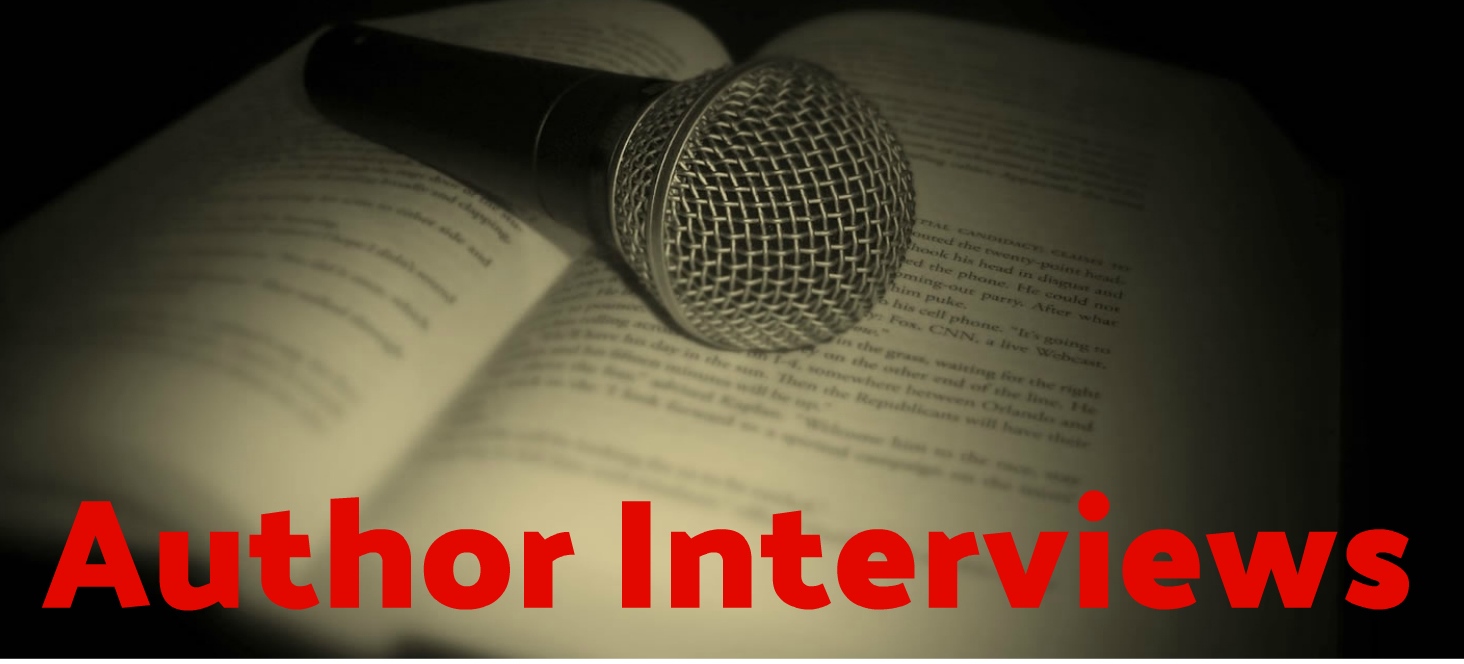
In-Depth Discussions with Today's Darkest Talents
Jack Ketchum from the ‘Offspring’ Movie Set / Part 2
By, Martel Sardina
Last week, Dark Scribe Magazine’s Martel Sardina paid a visit to the movie set of Offspring, the film adaptation of Jack Ketchum’s Off Season sequel. In the second part of our in-depth interview with the legendary dark scribe, Ketchum chats at 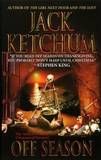 length about how his iconic 1981 classic novel Off Season made it into print, how the publishing industry didn’t immediately warm to his visceral brand of horror, and how a sequel came to pass.
length about how his iconic 1981 classic novel Off Season made it into print, how the publishing industry didn’t immediately warm to his visceral brand of horror, and how a sequel came to pass.
Dark Scribe Magazine: Can you talk a little bit about where you were career-wise prior to writing Off Season? Did you have an agent?
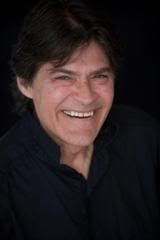 Jack Ketchum: When I did Off Season, I’d been writing fiction and non-fiction for (rock & roll and men’s) magazines for three years. I didn’t have an agent.
Jack Ketchum: When I did Off Season, I’d been writing fiction and non-fiction for (rock & roll and men’s) magazines for three years. I didn’t have an agent.
Dark Scribe: What precipitated the jump to novel writing?
Jack Ketchum: One year, I did twenty-four or twenty-five pieces. When you figure it out, it’s a lot per month. I was doing fairly well as a magazine writer, so I wasn’t really making the change for the money. I was looking for something I could do long term, so that I knew what I was doing when I got up in the morning - versus taking on piece meal writing assignments - without having to search for the next idea.
Dark Scribe: How much thought did you give to the commercial success of the story while you were writing the book? Meaning, did you know that people publishing fiction at that time were looking for that type of story? Or that that seemed like the next logical progression in horror at that time?
Jack Ketchum: After having gone to my little used bookstore and seeing that there was a resurgence of horror with King and Straub, Rosemary’s Baby, etc. It seemed to me that there was something the movies were doing that the books were not doing. And that was going at the violence very directly and in your face.
Even Steve [King] would turn away from the really down and gritty stuff. He’d leave a lot to your imagination. What if I don’t do this? What if I do a book that’s set in real time, sort of the way that The Texas Chainsaw Massacre was and the way Night of the Living Dead were? It gives you the illusion of real time. And, to get up close and personal with the actual violence. I thought ‘that’s not been done [in fiction] before.’ There’s a niche there that I’d be interested to try to fill.
The horror film scene then was just as vital as the book scene was, if not more so. I thought, ‘Let’s see if I can make a book that feels like a movie.’ [One] that’s just as action-packed as a movie. That was the niche that I was trying to fill.
Dark Scribe: How were you able to sell the book without an agent?
Jack Ketchum: I’d been an agent myself for three and a half years. I was still known by many of the people in the publishing 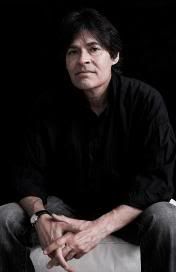 industry as an ex-agent - or an agent because they didn’t know I’d left. I decided to agent this myself and tell people that I’d found Jack Ketchum, this new guy.
industry as an ex-agent - or an agent because they didn’t know I’d left. I decided to agent this myself and tell people that I’d found Jack Ketchum, this new guy.
I picked two people; Judy Lynn del Ray at Ballantine Books was one of them. And because I didn’t want [the manuscript] to be in what we called the “shit” pile, which means the book would sit there because nobody knows if you can write or not. Even though I was an agent, that didn’t mean I could write. So I just said to Judy, ‘I found this guy, Jack Ketchum. I think he’s really good. Would you look at his book?’ She did.
It was about a week later when she called me back and said, ‘We want to buy it.’ I confessed that I was Jack Ketchum. And her response was, ‘Well, that’s easy, we can make the deal simpler. You already know how to read a contract.’ So, I agented that myself.
When Ballantine wanted a second book from me, I decided that I wanted to get an agent then. I went back to my ex-boss at Scott Meredith, Jack Scovil, and said, ‘I think I need you on this one.’
I’d written a very complex outline, a thirty-page outline. [Writing the outline] was horrible. When I turned in the book, they rejected it and said, ‘It’s not what we wanted. You didn’t deliver what we ordered.’ And I said, ‘It’s exactly what you ordered. That’s why it was such a pain in the ass to write.’ So I got Jack involved and he negotiated a contract by which they [Ballantine] would not publish that book, but they’d publish another one and add ten grand to the contract. And that [book] was Hide and Seek.
Dark Scribe: What ever happened to the second book?
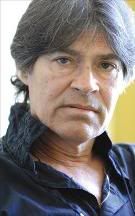 Jack Ketchum: The second book was an elephant. They wanted the second book to be, I guess you would say to compare me to Stephen King, a Salem’s Lot to a Carrie. Whereas, Off Season would be [my] Carrie. It was a short, hard-hitting little book. They wanted a bigger, much richer novel. So I had subplots in there with cops and FBI guys and the army…the whole bit. I shelved it for years. I was sort of lying fallow for a little while. I’m trying to remember which books it fell between. It might have been right after The Girl Next Door. I said, ‘Let’s pull it out and look at it again.’
Jack Ketchum: The second book was an elephant. They wanted the second book to be, I guess you would say to compare me to Stephen King, a Salem’s Lot to a Carrie. Whereas, Off Season would be [my] Carrie. It was a short, hard-hitting little book. They wanted a bigger, much richer novel. So I had subplots in there with cops and FBI guys and the army…the whole bit. I shelved it for years. I was sort of lying fallow for a little while. I’m trying to remember which books it fell between. It might have been right after The Girl Next Door. I said, ‘Let’s pull it out and look at it again.’
I’d already had a friend of mine, Richard Christenson, try to cut it a little bit, but that didn’t work out. So I pulled it out and went after it with a meat cleaver and found that there was sort of a nice, tight little book inside about the same length as Off Season, which is what it should have been in the first place.
Dark Scribe: Is that what wound up becoming Offspring?
Jack Ketchum: No, Offspring happened almost ten years later. I had no intention of writing a sequel at all. That second book was published much later as Ladies Night. It’s my second to most recent novel.
Dark Scribe: Based on a prior conversation we had, I thought that Off Season was not a commercial success. Why did you want to write a sequel?
Jack Ketchum: Actually, Off Season sold very well. The publisher basically tried to tank it because it got such bad notices from the distributors. I think the first edition to distributors was 30,000, which was unheard of. The distributors said, ‘This is violent pornography and we want no part of it.’
They pulled all of the point of purchase displays, pulled all the banners which I’d seen designs for and that were all set to go. In fact, I have a couple. But they put the book out anyway. They put out their original edition, which was 400,000. Out of the 400,000, I think they sold 300,000 by word of mouth alone. So it did quite well.
Dark Scribe: So they pulled the marketing?
Jack Ketchum: The book itself did well, but they pulled the marketing and buried me with Hide and Seek. They went from a print run of 400,000 to 40,000 for Hide and Seek. They wanted no part of me at that point. That was the book that Jack negotiated the contract for. Then I was stuck in the 40,000 copy limbo for a long time. Publishers track that. They pop it up in the computer. ‘Oh, that’s what we printed last time? That’s what we’ll publish this time.’
I did Offspring ten years later because, well, there were two reasons. First of all, on all my subsequent books, it says ‘author 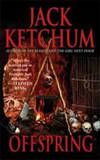 of Off Season’ and that book had been out of print for years. I wanted to get Off Season back in print. This was my best seller and I’m actually pretty well known for it. I got a contract with Berkley and I had an idea for a sequel. What made it different is that it would be more character-driven than the first one was and I can write about these people that I actually know.
of Off Season’ and that book had been out of print for years. I wanted to get Off Season back in print. This was my best seller and I’m actually pretty well known for it. I got a contract with Berkley and I had an idea for a sequel. What made it different is that it would be more character-driven than the first one was and I can write about these people that I actually know.
The characters of Steven, Claire and Luke are based on real people. I was writing that story with the surround of cannibals this time. Because for me, the bad guy in this is Steven. The cannibals are just doing what cannibals do.
If you read Off Season carefully, it’s quite clear that all of the cannibals at the end of the book are dead. I just sort of said, ‘Ok, one of them isn’t dead.’ She went on to reproduce and kidnap some other people and start the clan over again. Strangely enough, no one has ever called me on that and said, ‘Hey, wait a minute, I did a body count.’ No one’s ever done the body count.
Dark Scribe: You got off lucky. (laughs)
Jack Ketchum: I figured even if they did, I was going to do it and the hell with it.
Dark Scribe: In the version of Off Season that I read [Leisure’s “uncut” version], you give an explanation about why you wanted to release the uncut version where you don’t have the ‘happy’ ending. Nick dies; things go very wrong. But in Offspring, you give readers a decidedly happier ending. Why it was so important that one book end very dark and downbeat, but you went in the opposite direction with the second book?
Jack Ketchum: The books have different thrusts, different intents. Off Season needed to have the downbeat ending because one of the points of Off Season was struggle though you will, life is very random - chance plays a big, big part in it. It was an ending very similar to, maybe even stolen from, Night of the Living Dead - you know the guy who you think is going to survive doesn’t. But I wanted that really downbeat ending because I was probably fairly depressed at the time I was writing it. (laughs)
What was different about Offspring is that I was very focused on the relationships between the two women. And the woman and her son. I wanted that friendship between the two women to endure. I certainly wanted the son to grow. He’s a very insecure kid, with good reason. It has a similar thrust to Off Season, in that he [Luke] does something that he never in a million years would’ve thought himself capable of. He does fairly heroic things and so does the protagonist in Off Season, the woman who actually makes it out, Marjie. I was focusing more on characters in this one.
I believe in something Robert Bloch told me: ‘Know where you’re going.’ What he meant was, know what you want the reader to feel at the end. At the end of Off Season, I wanted the reader to feel absolutely devastated.
Dark Scribe: You succeeded in that.
Jack Ketchum: (laughs) Thank you. In the ending of Offspring, I wanted the relationships to endure. I wanted them to get through it and I wanted the boy to grow. And grow fairly unscathed because I liked the boy and wanted him to become a good man. There’s a line of hopefulness that starts with the bonding, that friendship. If you’ll notice in Off Season, the people aren’t very close to one another.
Dark Scribe: You have the two sisters who are close…
Jack Ketchum: But one of the sisters dies in the first act…
Dark Scribe: But the rest of the people are…
Jack Ketchum: Except for Nick and Marjorie. Nick loves her and he’s going through hell to try to save her, but…
Dark Scribe: I see what you mean. Some of the other people are just red shirts. Characters who are just there so that they can die.
Jack Ketchum: They don’t really know one another very well and they’re dating…they’re younger. The people in Offspring are more mature. They’re in their 30s and 40s, whereas the people in Off Season are in their 20s and 30s. And I think that difference is there, again coming back to the ten-year difference between the years when I wrote the two books. I was closer to the age of the people in Off Season when I was writing it and closer to the age of the people in Offspring when I was writing that.
Dark Scribe: So I had some thoughts about why you brought back Peters. In Offspring, there’s this whole element of redemption for Peters. Why didn’t Marjie get the chance to come back to get her vengeance for her sister and all of her friends who died?
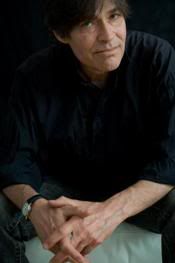 Jack Ketchum: (laughs) At the end of Off Season, the future doesn’t look great for Marjorie. I don’t think that she’ll ever have a completely sane relationship again, though I hope that she might. There’s a lot of therapy that’s going to have to go into that woman’s head before she gets it together.
Jack Ketchum: (laughs) At the end of Off Season, the future doesn’t look great for Marjorie. I don’t think that she’ll ever have a completely sane relationship again, though I hope that she might. There’s a lot of therapy that’s going to have to go into that woman’s head before she gets it together.
Dark Scribe: I was sort of hoping that in Offspring there would be some sort of mention about Marjie’s fate.
Jack Ketchum: You know…that never even crossed my mind. I knew that this was going to be about Peters and Peters only. Marjie would’ve left Dead River forever. She’d never come close to going back there.
Dark Scribe: I wondered if there would have been a residual bond between the two of them [Peters and Marjie]. Maybe they would have talked from time to time?
Jack Ketchum: I didn’t even think of that. (laughs) Next book.
Dark Scribe: Ah, the next book. When are we going to see another Jack Ketchum novel?
Jack Ketchum: (with mock scolding) When I get to it, damn it! (laughs)
Dark Scribe: (sighs) Oh, all right.
Jack Ketchum: You, my agent, my publisher. Everyone wants to know ‘When am I going to see another novel?’ I’m cranky. I write for myself, mostly. I write to please myself. So if I want to do a short story or a novella even though the market says I should be doing a novel now, I got into this business to have fun. And I’m going to continue to do that.
Author Photos: Caudio Sforza
Purchase Off Season and Offspring by Jack Ketchum.
Visit Jack Ketchum's official author website.



